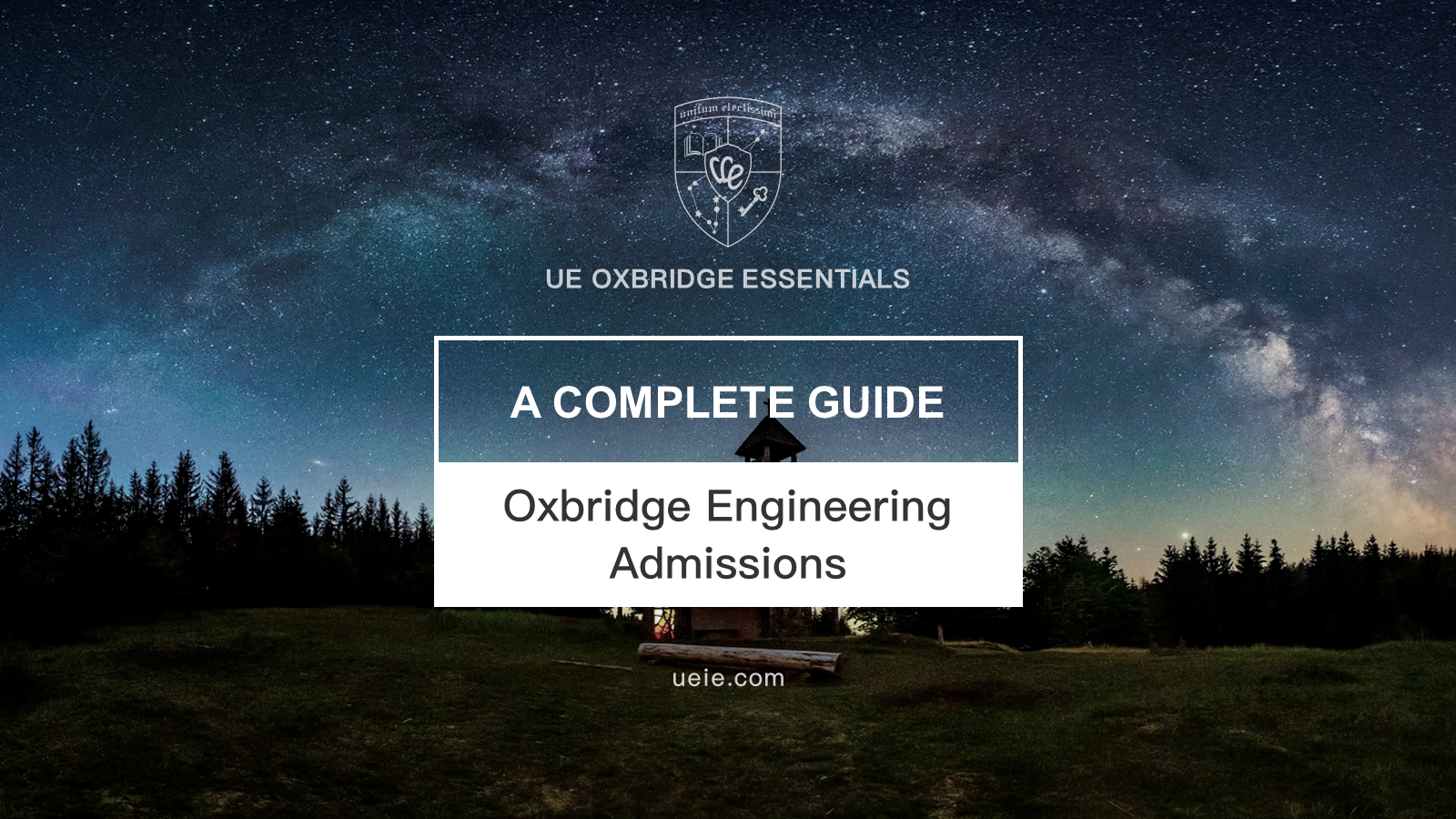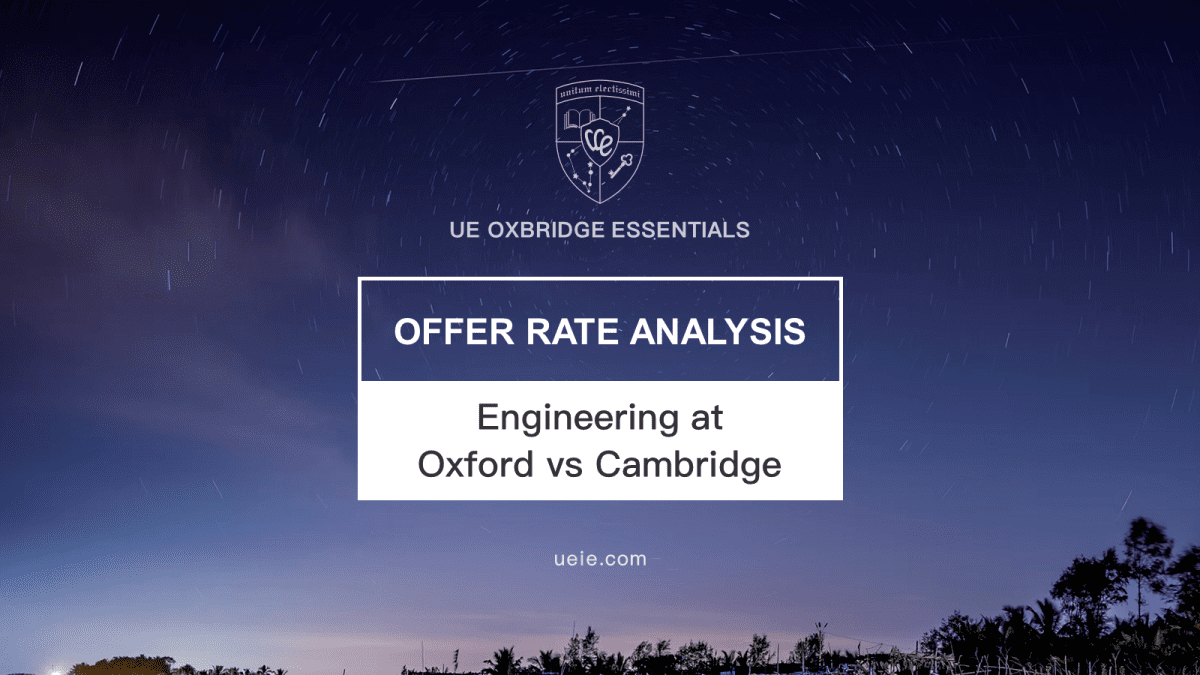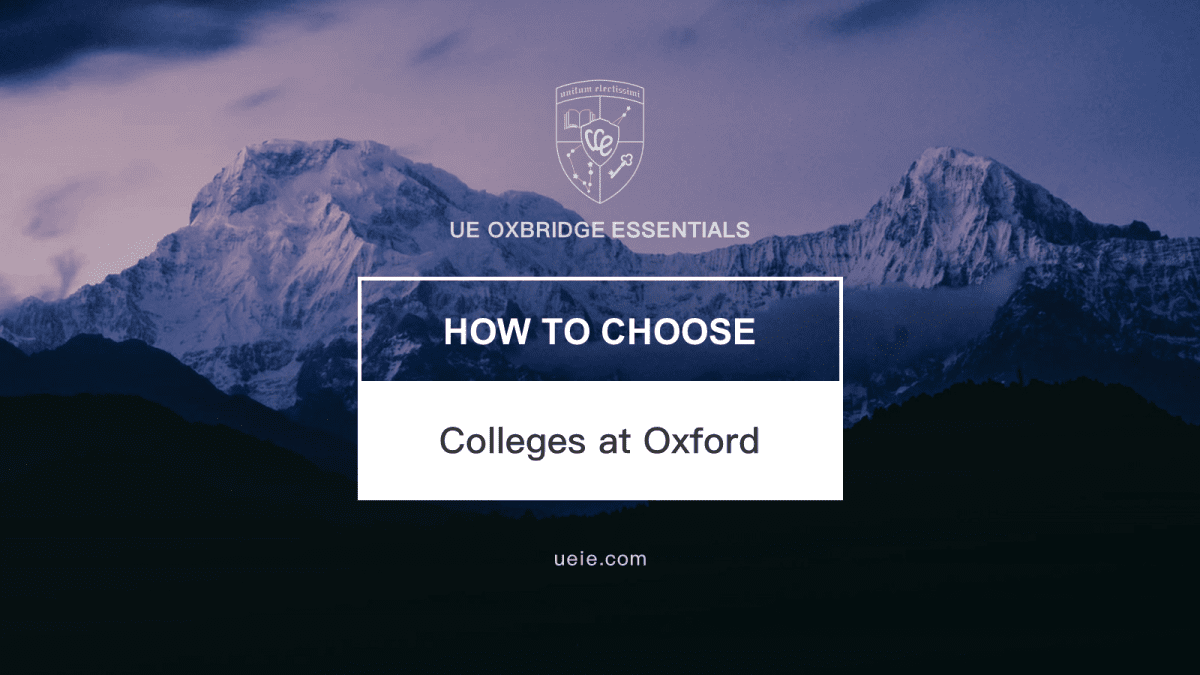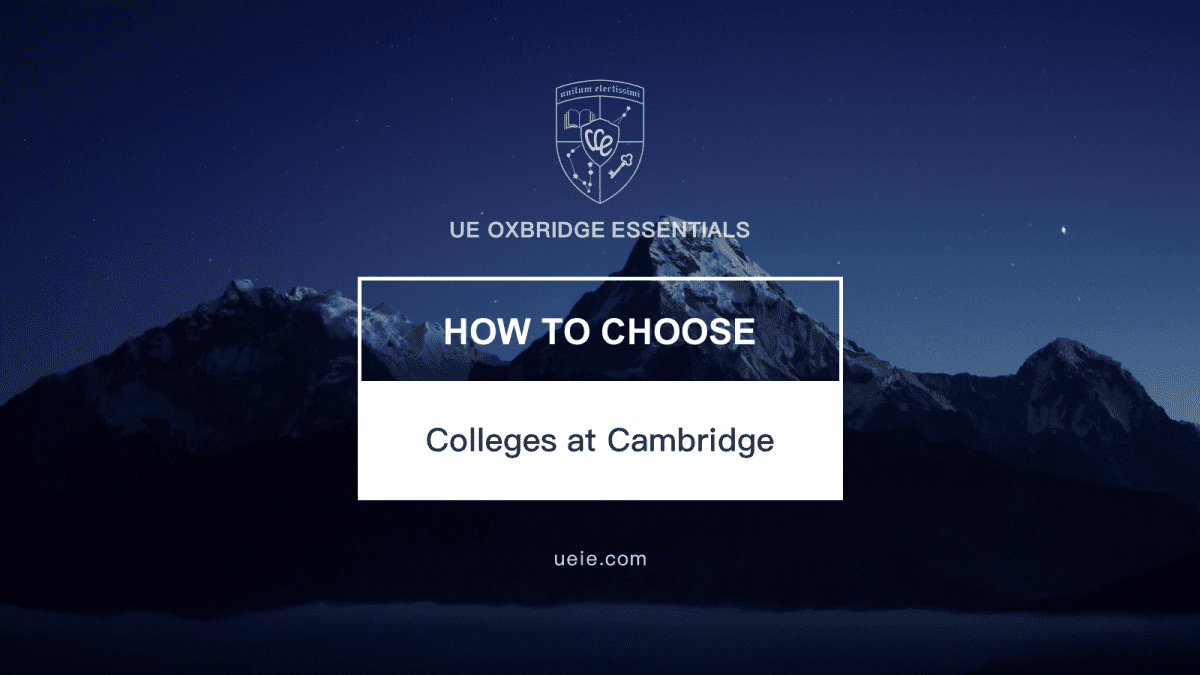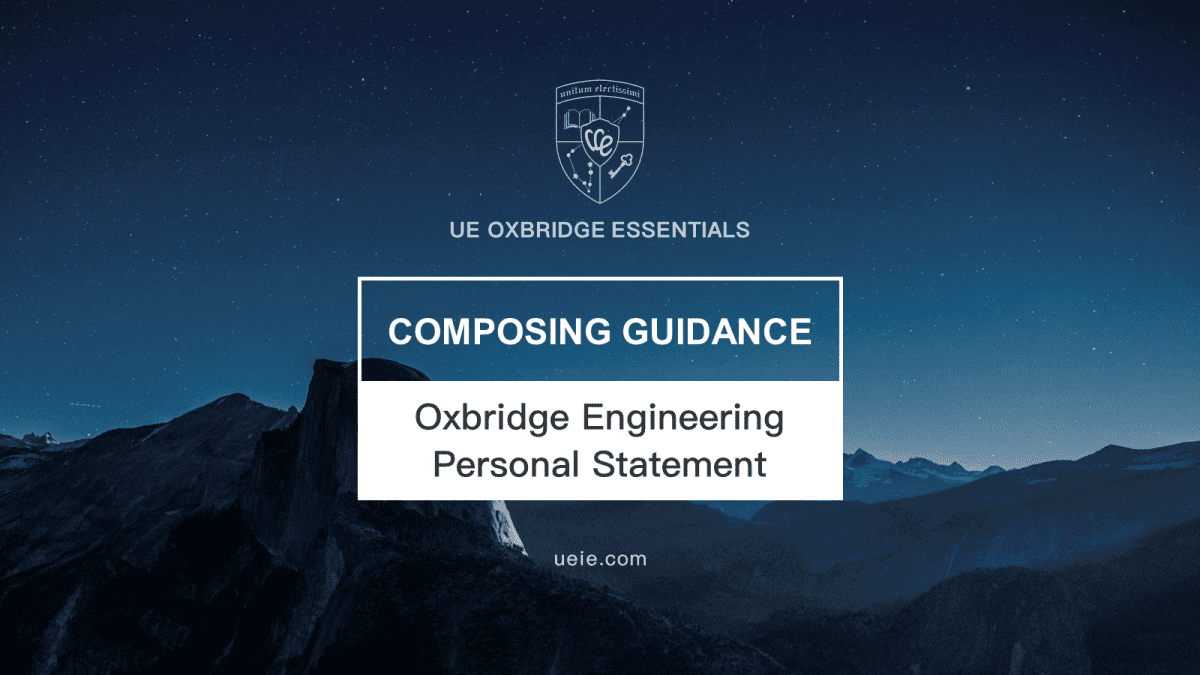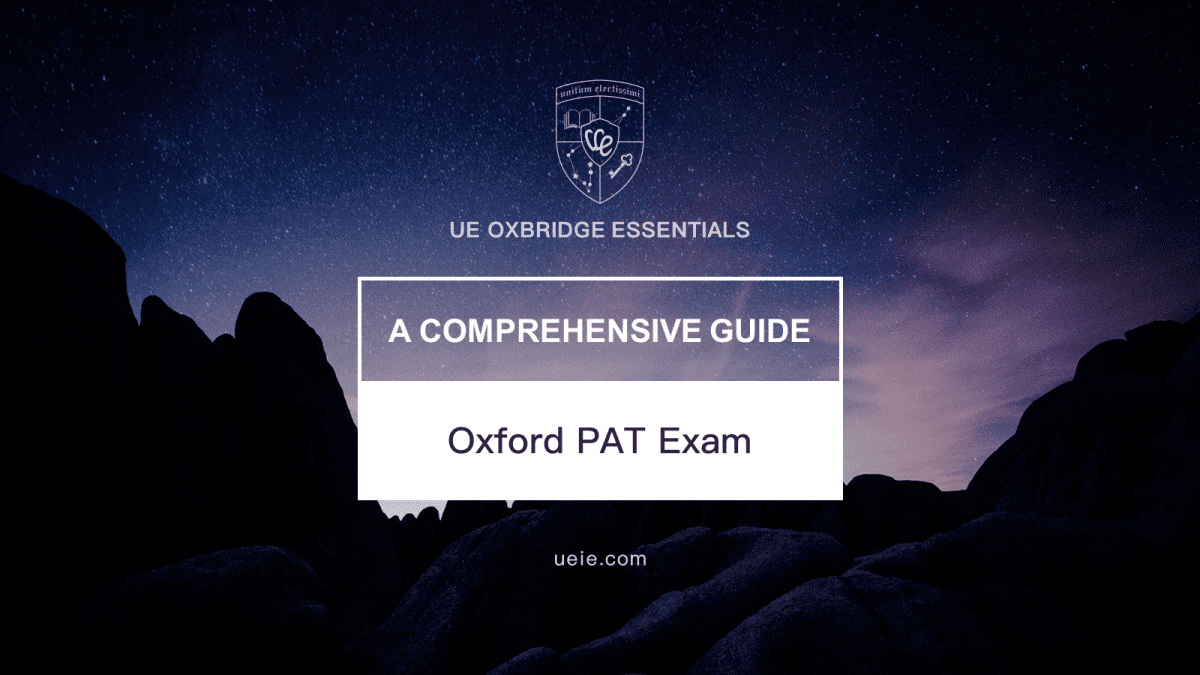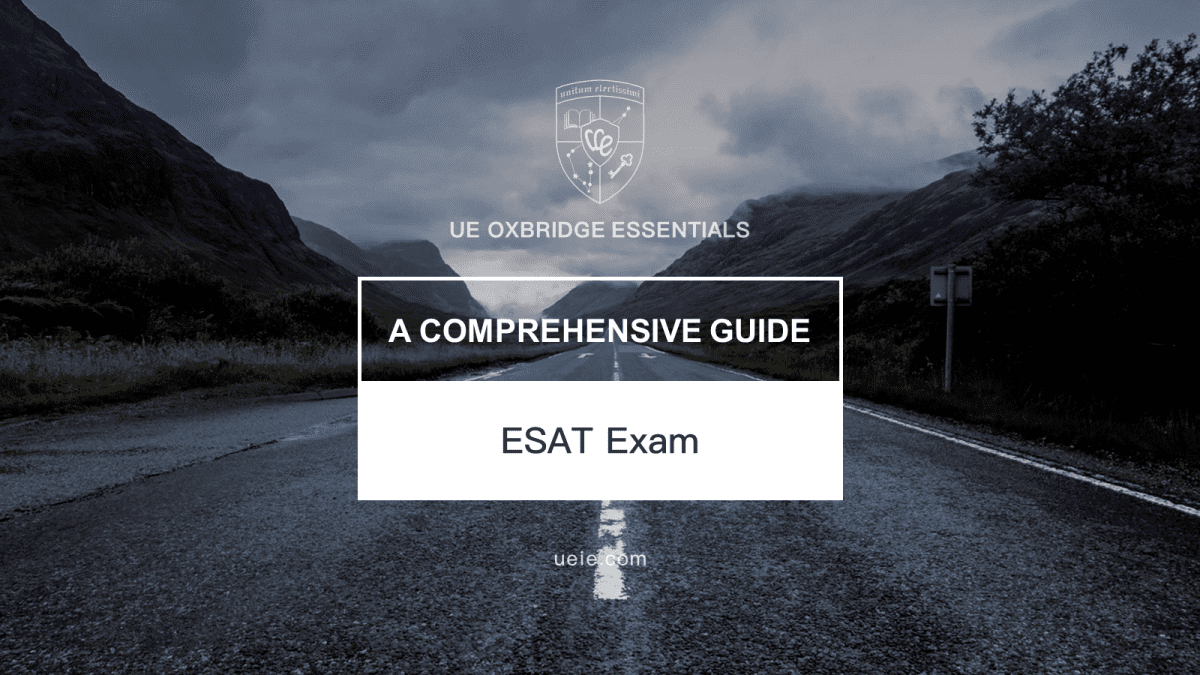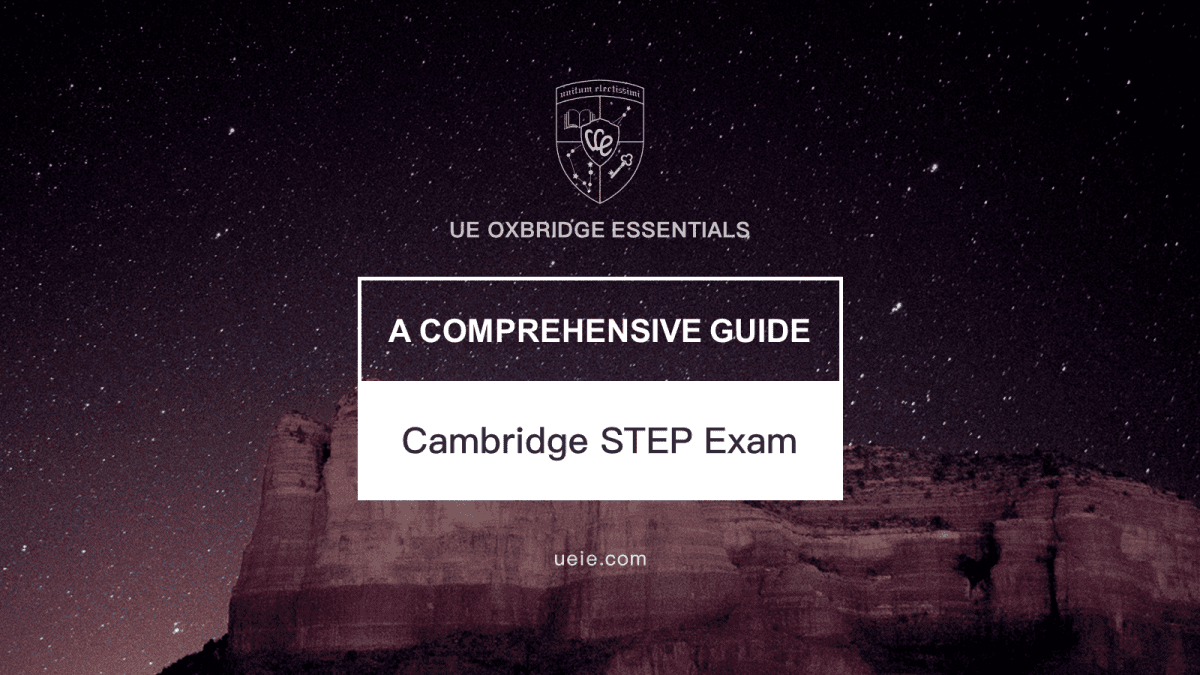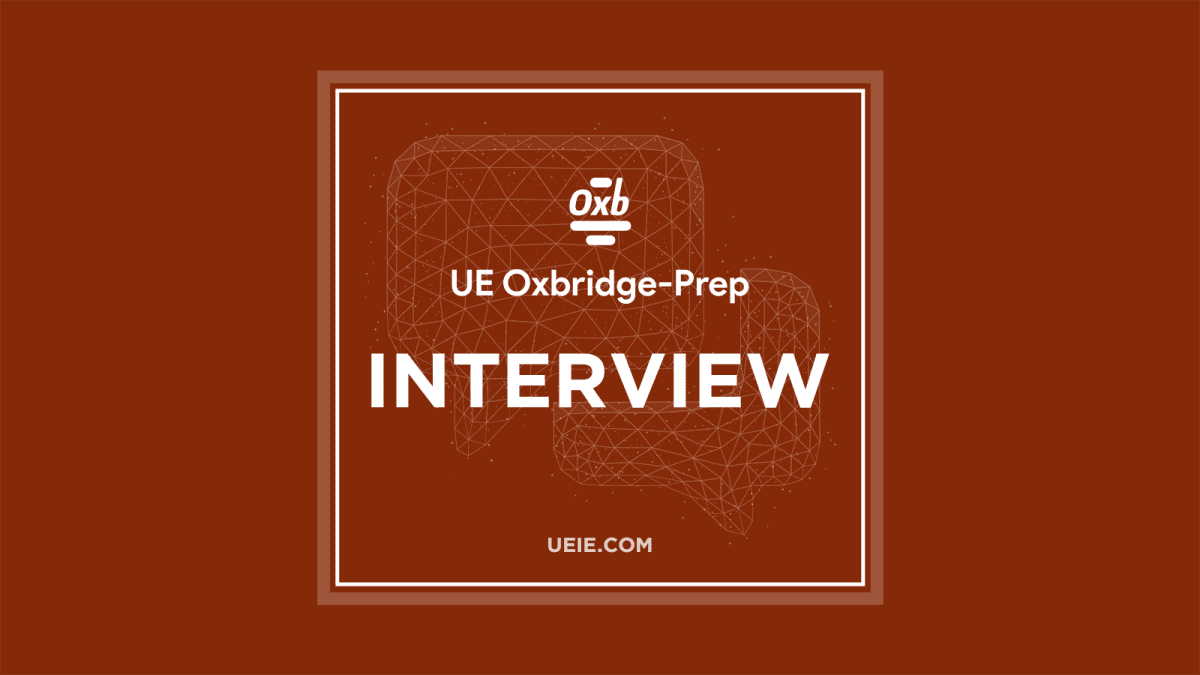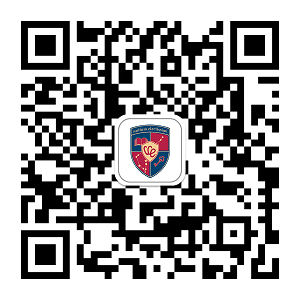I. Common Knowledge to Oxbridge Engineering Admissions
1. Choose Either Oxford or Cambridge
You can only apply to only one course of either Oxford or Cambridge in a same academic year, rather than applying to both the two universities.
2. Apply Through the UCAS
- You are required to submit your application through the UCAS (Universities and Colleges Admissions Service), which serves as the official admissions platform for universities and colleges in the UK.
- You are only allowed to list up to 5 course choices.
II. Timeline for Oxbridge Engineering Courses
Timeline for 2025 Entry
2024
June|September | Preparing for the ApplicationChoosing Your Course
Writing Your Personal Statement Preparing Your Academic Reference Choosing Your College |
August1 | Registration for ESAT Exam BeginsCambridge engineering-related courses applicants |
September3 | UCAS Application OpensUCAS Registration Center Code: 42757 |
SeptemberT.B.D. | PAT Exam Registration Deadline Oxford engineering-related courses applicants |
September16 | ESAT Exam Registration DeadlineCambridge engineering-related courses applicants |
October15 | UCAS Application Submission DeadlineFor all applicants to Oxbridge engineering |
October15 or 16 | Cambridge ESAT Exam DayCambridge engineering-related courses applicants |
OctoberT.B.D. | Oxford PAT Exam DayOxford engineering-related courses applicants |
October22 | Deadline for Submitting My Cambridge Application and TranscriptsStudents applying for Cambridge |
November|December | Receive interview invitations |
Decemberfirst three weeks | Oxbridge Interview |
2025
January14 | Release of Oxford University Admission Offers |
JanuaryMid | Release of Cambridge University Admission Offers |
August31 | Deadline for Meeting Conditional Offer Requirements |
October | Official Commencement of the Academic Year |
III. How to Choose an Oxbridge Engineering Course?
The University of Oxford has two categories of engineering-related courses, Engineering Science and Materials Science, and six sub-divisions courses within the Engineering Science:
| Courses | UCAS code |
| Engineering Science | H100 |
Biomedical Engineering | H811 |
Chemical Engineering | H800 |
Civil Engineering | H200 |
Electrical Engineering | H620 |
Information Engineering | H630 |
Mechanical Engineering | H300 |
Materials Science | FJ22 |
In 2022, the University of Cambridge discontinued the original Chemical Engineering (Natural Sciences) course with the UCAS code H813. They renamed the existing Chemical Engineering (Engineering) course to Chemical Engineering and Biotechnology while retaining the UCAS code H810. Therefore, Cambridge University still offers two courses related to engineering.
| Courses | UCAS code |
| Engineering | H100 |
| Chemical Engineering and Biotechnology | H810 |
IV. What Are the Oxbridge Engineering Admission Requirements?
1. General Admission Requirements
The general admission requirements for Oxbridge engineering courses are outlined in the table below:
Course | Oxford Engineering | Cambridge Engineering | |
Language Proficiency: |
|
| |
A-Level | A*AA (including Mathematics and Physics, with an A* in either Mathematics, Physics or Chemistry) | A*A*A | |
IB Scores: | 40 (including core points) with 766 at HL (with 7 in either Mathematics, Physics or Chemistry) | 41-42 points, with 776 at Higher Level | |
SAT/AP | Requirements vary and are based on conditional offers. |
| |
High School Exam (e.g., Gaokao): | Not accepted. | Ranked in the top 0.1% of college entrance examination candidates in their province. | |
University Entrance Exam: | PAT | ESAT | |
Interview | Yes | Yes |
The admission requirements for materials science at Oxford are slightly lower than for engineering science:
- A-Level requires A*AA.
- IB score requires 766, but the total score remains 40.
2. Oxford's Official Statement on Reference Criteria for Admission
Expectations of the Oxford Engineering Department
Enthusiasm for engineering combined with high ability in mathematics and physics is essential for those wishing to study any engineering course. These qualities will be tested at the interview and combined with an assessment of your predicted and attained examination performance (especially in mathematics and physics, and your PAT score) to decide who will be offered places.
Three points are important:
First, the student should have a strong interest and curiosity in engineering science.
Second, they must have a solid foundation in mathematics and physics, which is the premise for studying engineering.
Third, and most importantly, the PAT scores significantly determine whether a student will be offered a place.
3. Oxford's Official Statement on Reference Criteria for Admission
Expectations of the Oxford Engineering Department
Colleges organise their assessment procedures in slightly different ways, but, in broad terms, all are looking for students who show:
A sound knowledge base and confidence in a range of skills. This includes not just the capacity to do well at A Levels, but the potential to go beyond the A Level syllabus and to use this knowledge in less familiar situations;
A wider engagement with the subject, expressed through an interest in new ideas and an enthusiasm for reading round the subject;
Self-discipline, self-motivation and commitment;
Capacity to learn.
For Engineering, evidence of motivation and commitment might be shown in a number of ways that could include:
Relevant hobbies and interests;
Participation in
STEMNET events and activities,
Engineering Education Scheme projects,
a Headstart course,
the Arkwright Scholarship scheme,
Smallpeice Trust courses,
Young Engineers activities,
and other similar courses or activities;
Relevant work experience placements;
Applying for deferred entry in order to participate in schemes such as the Year In Industry;
The seeking of industrial sponsorship.
Compared to Oxford, Cambridge’s description is more detailed, but the requirements are generally similar:
First, the grades must be good; only learning A Level is far from enough; students need to explore knowledge beyond the A Level syllabus extensively.
Second, students need to read more advanced and recent content related to engineering extensively.
Third, students should have a strong sense of self-drive and responsibility, which can be demonstrated by participating in various engineering-related extracurricular activities.
Fourth, students should have strong learning abilities and talents.
Key data provided by the Cambridge Engineering Department
Typical Engineering entrants
(A Level and IB)
For 2017, 2018 and 2019 entry, the majority of entrants from an A Level background achieved at least grades A*A*A* (87% of entrants). All of these successful applicants took Mathematics, 95% took Further Mathematics, 98% took Physics and 62% took Chemistry. For the same period, the majority of IB entrants achieved at least 43 points overall and/or grades 777 at Higher Level.
This information is intended to give you a sense of the academic standard of our typical A Level entrants. We welcome applicants from a range of qualification backgrounds.
The conclusion of the above data is as follows:
87% of students studying A Level achieved A*A*A* or above. The percentage of students taking respective courses is 100% for Mathematics, 95% for Further Mathematics, 98% for Physics, and 62% for Chemistry. Meanwhile, the majority of IB students scored at least 43 points (HL 777) or above.
Therefore, it is recommended and essential to look at the statistics and information provided by the Univerisity of Cambridge rather than relying on general admission requirements.
Which is easier to apply for, engineering at Oxford or Cambridge? Let’s analyze the admission statistics from previous years.
V. Application Process and Required Materials
The application process of applying to Oxbridge engineering is not complicated. However, there are some important details you need to know and materials to prepare before applying.
1. Materials Required for UCAS Application
When applying to Oxford or Cambridge through UCAS, you must confirm or submit the following information:
- The specific course and its UCAS code at either Oxford or Cambridge.
- Choose a particular college or open application.
- Your personal information, including your email address.
- Your educational history and your academic achievements to date.
- Your Oxbridge engineering personal statement.
- Your academic reference.
2. Differences between the Application Processes for Oxford, Cambridge, and Other UK Universities
The application process of applying to Oxbridge engineering through UCAS is similar to other universities in the UK, with the exception of certain courses and circumstances. However, there are a few important points to know:
- Early Application Deadline: The application deadline for Oxford and Cambridge is October 15th, earlier than most other universities.
- Selection of College or Open Application: Unlike many other universities, applicants to Oxford and Cambridge must choose a particular college or opt for an open application.
- Single Course Application: Unless under extremely rare circumstances, Oxford and Cambridge allow applicants to apply for only one course.
- Transcript Requirement: Cambridge University may request transcripts from some applicants covering their secondary school academic records.
3. Official Undergraduate Application Process for the University of Cambridge
4. Official Undergraduate Application Process for the University of Oxford
Part 1: What Oxford is Like
Part 2: How to Apply
Part 3: Preparing
5. Language Proficiency and High School Grades
Language proficiency does not need to meet the admissions requirements before the UCAS application deadline of October 15, 2024, but only the admissions requirements of the relevant courses before August 31, 2025.
Predicted high school grades need to be submitted before October 15th. This score is one of the critical factors for Oxbridge admissions reference.
6. Open Application (Choosing a College)
It can be difficult for you to choose a college from the pool of 30 colleges at both Oxford and Cambridge. If you are not that confident or do not care which college to apply to, you can choose an open application on UCAS.
- After the application deadline, students who choose an open application will be randomly assigned to a college via a computer program.
- The random allocation aims to balance the number of applicants across various colleges and courses.
- Once assigned to a college, the application process proceeds like other students.
- For students who meet all the application requirements, the likelihood of being admitted is the same whether they choose a specific college or opt for an open application.
Click the link below to view our blogs about Oxbridge colleges and how to choose a college in Oxbridge.
7. Personal Statements
As a part of the UCAS application process, every student is required to submit an application essay, also known as a personal statement (PS). The Oxbridge engineering personal statement serves as a tool for universities to better understand students’ interests in the subject and course, which also allows students to better understand their academic interests and motivations.
Typically, the personal statement should encompass the following aspects:
- Explain the reasons for wanting to study the relevant course at the university.
- Demonstrate enthusiasm and dedication to the chosen course.
- Express specific interests within the relevant field of study.
- Articulate how one is committed to researching the subjects of interest.
Click on the link below for more guidance on composing an engineering personal statement and official suggestions from Oxford, Cambridge, and UCAS.
8. Academic References
Academic references (academic references at Oxford and school/college references at Cambridge) provide universities with a better understanding of a student’s abilities and potential. What’s more, admissions officers use these references to assess whether a student’s academic capabilities are suited for the chosen course and if they can adapt to the university’s learning environment.
As a crucial component of the UCAS application, universities typically prefer academic references submitted by school teachers or individuals who can provide authoritative insights into a student’s academic background.
Please note that academic references must also be submitted before the application deadline on October 15th.
9. Transcripts
To find out if you need to submit the transcript when applying to the University of Cambridge, you should check the official Cambridge guidelines in the section “Completing My Cambridge Application“.
VI. What Preparation is Needed for Applying to Oxbridge Engineering?
1. Preparing for the Oxford PAT
Students applying for physics-related courses at Oxford must take the PAT exam. Before 2019, the PAT score was not only a crucial basis for issuing interview invitations but also an important reference for conditional offers.
Since 2019, the PAT score combined with the weighted cGCSE scores to form the R-score. The likelihood of receiving an interview invitation largely depends on the R-score. Due to the pandemic, the 2021 PAT score significantly impacted the chances of progressing to the interview stage. After the interview, the student’s PAT score and weighted interview score are combined to form the C-score, which is one of the important factors affecting admission. Oxford officials point out that typically students who are ranked in the top 100 by C-score are admitted. According to the PAT report given by Oxford officials at the end of 2022, Oxford hopes to continue using the R-score as a basis for pre-interview screening of candidates. If all goes as expected, the R-score will be an important basis for whether applicants for entry in 2024 will receive an interview invitation.
Please refer to the blog for comprehensive understanding and preparation suggestions for Oxford PAT exams.
2. Preparing for the Cambridge ESAT
The ESAT is a computer-based assessment, and it’s made up of individual multiple-choice assessments that last 40 minutes each. Students will sit these back-to-back on the day of the test.
Mathematics 1 is compulsory for all candidates. And the remaining assessments will depend on the Cambridge course students are applying to. When applying for Natural Sciences, you will complete Mathematics 1 and two additional multiple-choice assessments from Biology, Chemistry, Physics, or Mathematics 2, making the test 120 minutes in total.
The final scores are based on the number of correct answers you give, and you do not lose marks for wrong answers, so there is no pass or fail for ESAT. It would help if you aimed to do the best you can.
Please refer to the blog for comprehensive understanding and preparation suggestions for Cambridge ESAT exams.
3. Should I Prepare for the Cambridge STEP in Advance?
Some colleges at Cambridge include STEP scores as part of their admission requirements for engineering courses, such as Peterhouse College. In the past few years, UE has had students who received conditional offers with STEP scores from Cambridge, but this was an isolated case.
Students and parents often ask whether they should prepare for the Cambridge STEP exam in advance. The concerns mainly focus on two points:
- STEP is challenging to learn, and they are afraid they will be unable to understand it and waste time.
- It will be in vain if they learn it but are not admitted to Oxbridge.
Here are few points that Professor Xie Tao frequently shares in his seminars for students and parents:
- Students who prepare for STEP in advance find it easier to prepare for the PAT or ESAT and tend to achieve higher scores. In the months before the application deadline, students often have limited time for preparation, and the time saved can be used to improve the quality of application materials.
- Students who have studied STEP for over six months may have an advantage during the interview stage. The interview questions at Oxford and Cambridge are significantly more challenging than those in PAT and ESAT, often approaching or surpassing the difficulty level of STEP questions.
- Students taking the STEP exam start thinking more dynamically than those who have only studied regular A-level mathematics or AP Calculus courses. During the interview process, the interviewer can easily detect those with unique thinking styles. So appearing for STEP not only helps in exams but also gives them the urge to stand out in the crowd.
- Preparing for the STEP exam benefits students by giving them a new way of learning. It may not be seen in PAT or ESAT but is quite prominent during the interview. Students with a foundation in STEP tend to excel in interviews by better following the interviewer’s guidance and engaging in interactive discussions, thus earning higher interview scores.
- Students who start preparing for STEP after receiving conditional offers in January have a relatively low success rate in achieving the required STEP grades. Cambridge’s mathematics courses offer around 500 places each year, but only about 250 students meet the requirements. Most of those who do not meet the requirements typically fall short due to their STEP grades.
- Studying STEP also pays off because once you get to university, you’ll find that higher-level mathematics courses are not as challenging.
Please refer to the blog for comprehensive understanding and preparation suggestions for Cambridge STEP exams.
4. Interview Preparation
It is advisable to start a mock interview before receiving the invitation. Conduct at least six mock interviews covering various possible question types, scenarios, and topics, which will help improve your on-the-spot response speed and achieve the best interview results.
Check our blog about Oxbridge interview preparation.
5. Academic Research Projects
More and more students have been participating in university academic research projects in recent years. Experience engaging in academic research and excellent academic achievements can significantly enhance your personal statement and boost your competitiveness when applying to Oxbridge engineering courses.
Online research project topics are continuously updated. For more details, please refer to the following page.
6. Extracurricular Reading
While preparing for exams and personal statement can take up a significant amount of time, it is still advisable for you to engage in extracurricular reading. Typically, you are encouraged to read two deeply and broadly read more than ten books related to the field of Oxbridge engineering. Extracurricular reading can enrich the material for writing your personal statement, making it more appealing.
7. Oxford and Cambridge Summer Schools
Many summer schools have unique selling points, but not all are worth it, especially regarding teaching staff. It is recommended for students to attend summer school with reasonable fees because the purpose is to enhance and get a taste of learning methods at Oxbridge.
You can refer to our blog about the summer school of Brasenose College from Oxford.
8. Oxford and Cambridge Open Days
Both Oxford and Cambridge Universities have open days for students to learn about and visit their preferred universities and colleges in advance.
For Oxford University, 2024 undergraduate Open Days will be held on 26 and 27 June and 20 September. And for Cambridge University, currently published undergraduate Open Days will take place on Thursday 4 July and Friday 5 July 2024.
For more about the open days and other related events, please check the official websites of Oxford and Cambridge for detailed information.
Please refer to the following resources for more information on applying to maths courses at Oxford and Cambridge.
Attached: Recommended Readings for Oxbridge Engineering Courses
The Department of Engineering at Cambridge officially recommends 33 readings. These readings have been selected by former engineering students to broaden their perspective in the field of engineering rather than being mandatory readings for engineering courses. Therefore, purchasing these books is unnecessary before entering the University of Cambridge.
Publisher:UIT
Year:2008
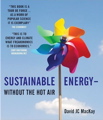
Publisher:Physics Education
Year:2003
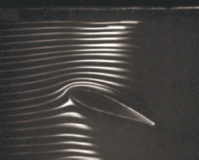
Publisher:UIT Cambridge Ltd.
Year:2012
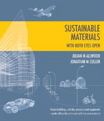
Publisher:Royal Academy of Engineering
Year:2013
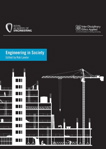
Publisher: Oneworld Publications
Year: 2009
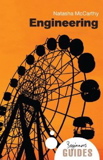
Publisher: Penguin
Year: 1991

Publisher: DaCapo Press
Year: 2003
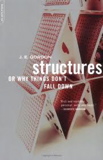
Publisher: W.W. Norton & Co.
Year: 2000
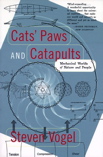
Publisher: Harper Perennial
Year: 2006
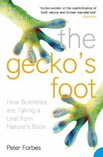
Publisher: Johns Hopkins University Press
Year: 1993
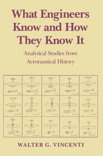
Publisher: Harvard University Press
Year: 1992
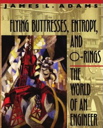
Publisher: Newnes (Elsevier)
Year: 2009
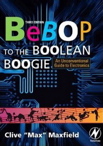
Publisher: Harvard University Press
Year: 1998
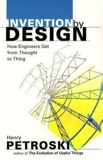
Publisher: Vintage Books
Year: 1992
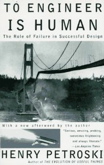
Publisher: Vintage Books
Year: 1999
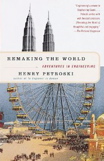
Publisher: Random House
Year: 2004

Publisher: Vintage Books
Year: 2005
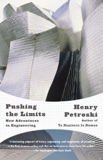
Publisher: Cambridge University Press
Year: 1994
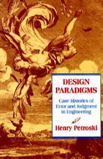
Publisher: Princeton University Press
Year: 2008
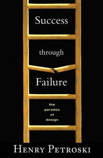
Publisher: Knopf Publishing Group
Year: 2010

Publisher: W.W. Norton & Company Ltd.
Year: 1994

Publisher: W.W. Norton & Company Ltd.
Year: 1991
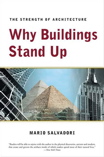
Publisher: J.H. Haynes & Co. Ltd.
Year: 2009
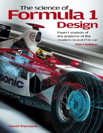
Publisher: MIT Press
Year: 2009

Publisher: McGraw-Hill Professional
Year: 2009
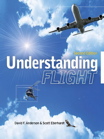
Publisher: Princeton University Press
Year: 1999
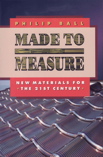
Publisher: Three Rivers Press
Year: 2005
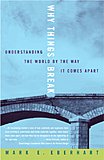
Publisher: Harper Perennial
Year: 2004

Publisher: Faber & Faber Ltd.
Year: 2004

Publisher: Souvenir Press Ltd.
Year: 1995

Publisher: Oneworld Publications
Year: 2015

Publisher: John Wiley & Sons
Year: 2009
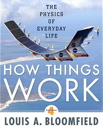
Publisher: Longman Group Ltd.
Year: 2000


